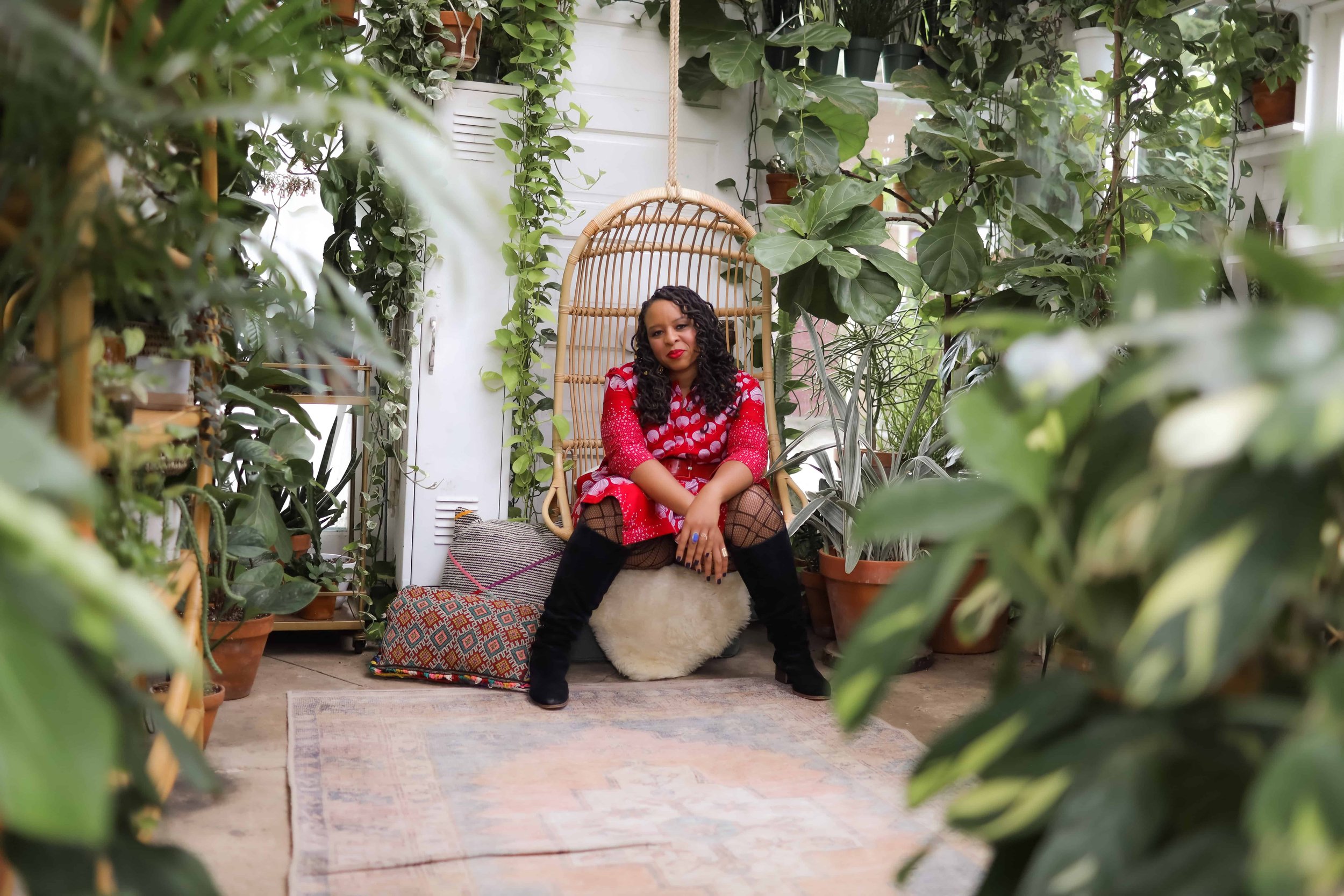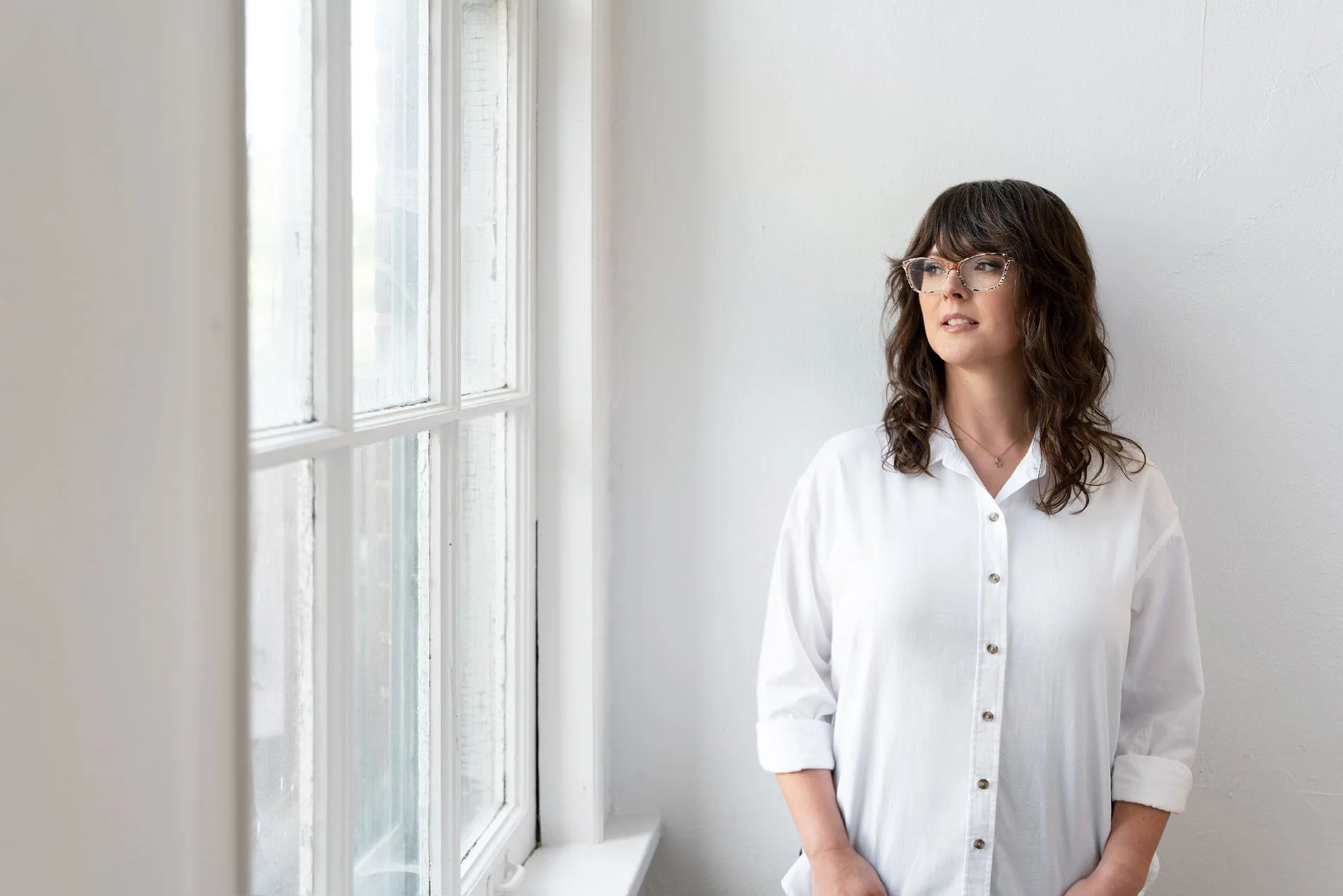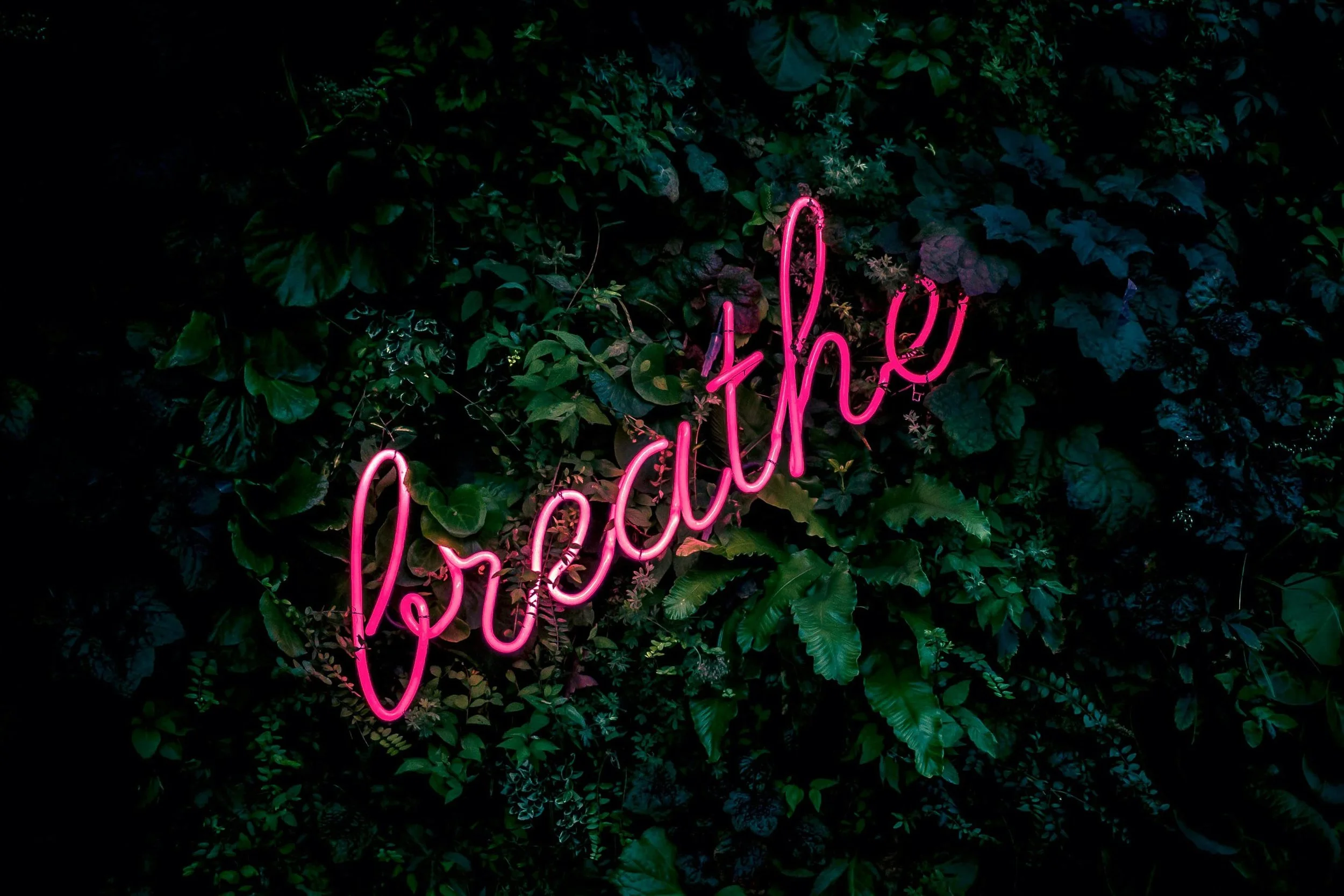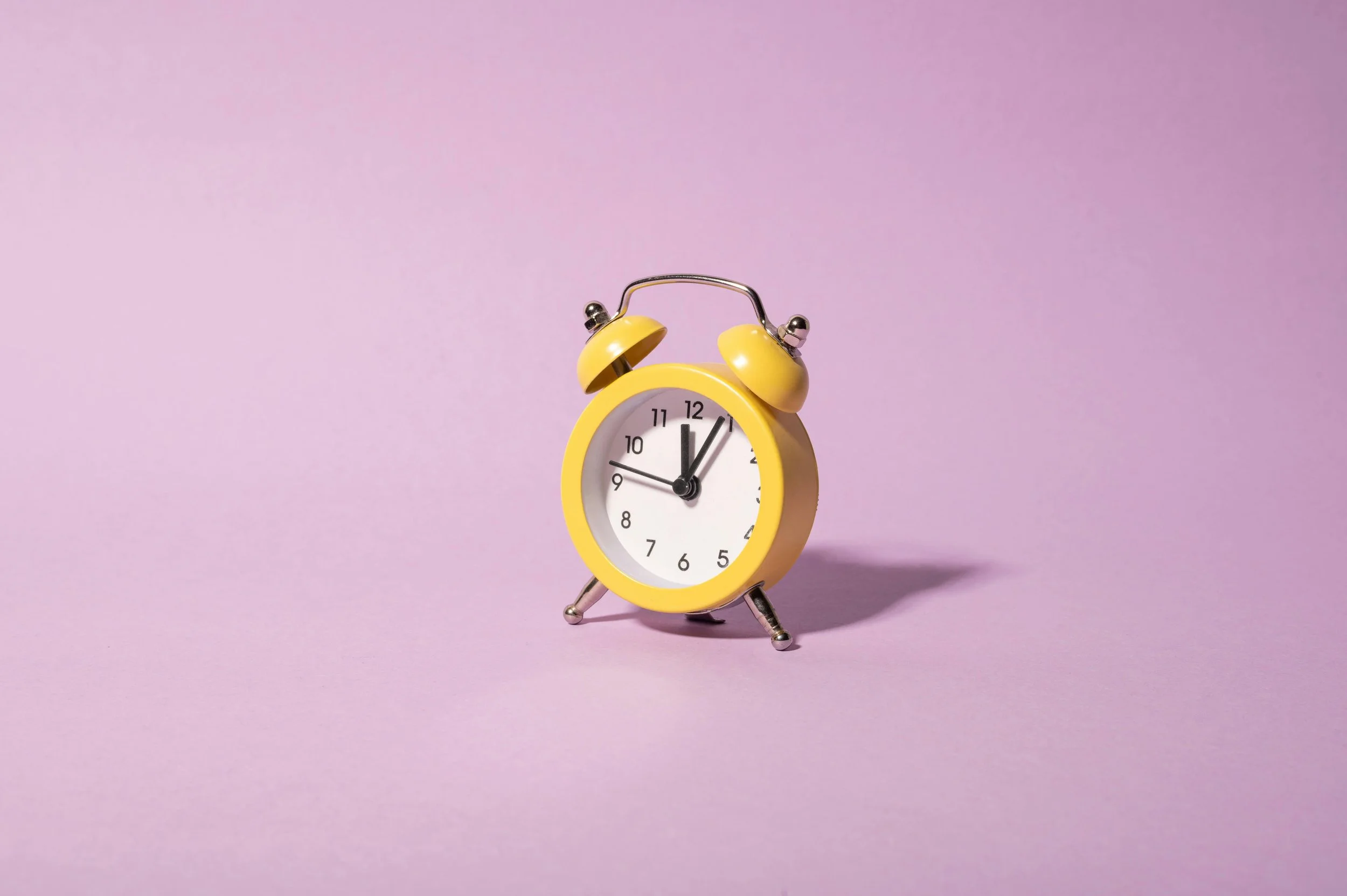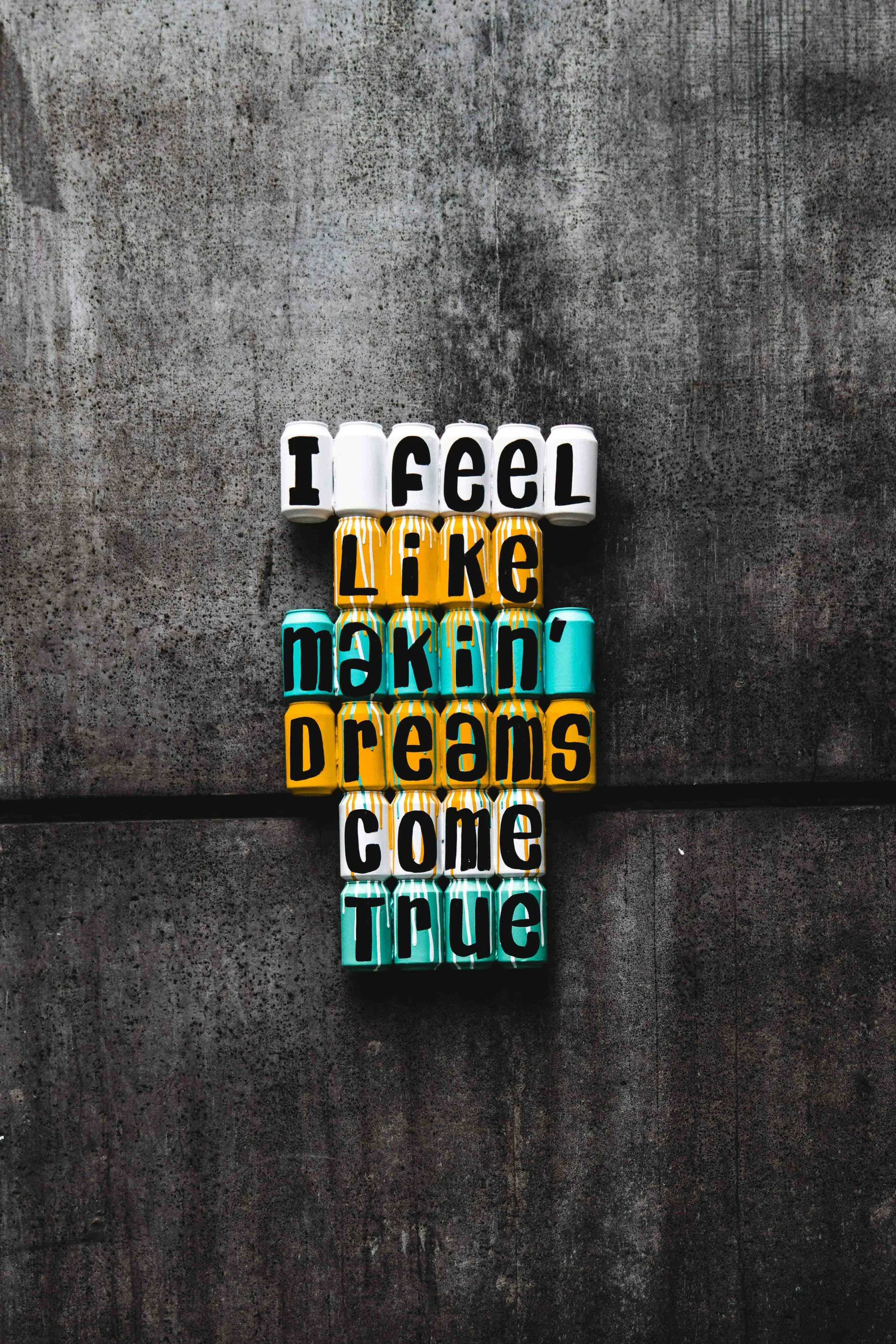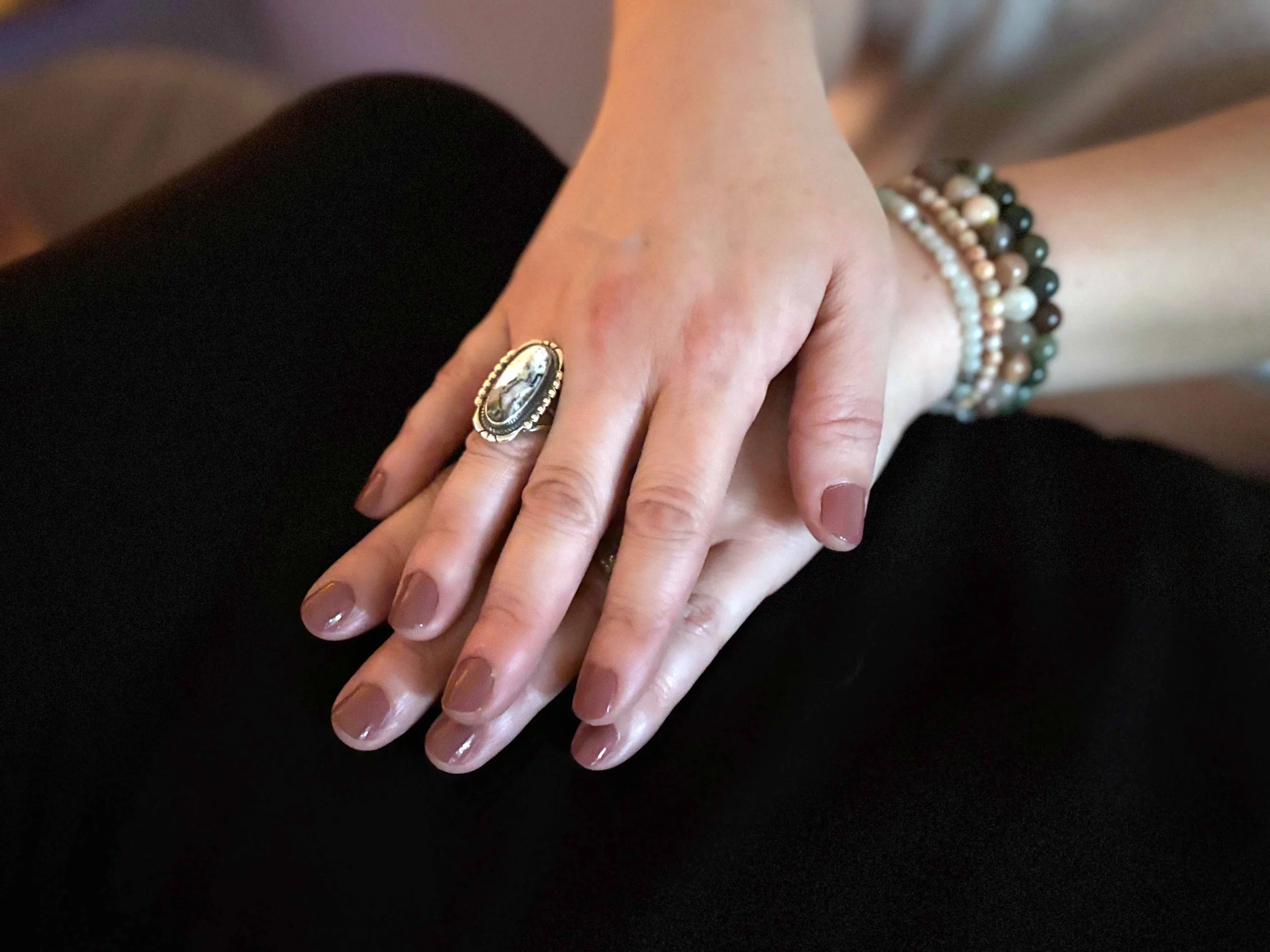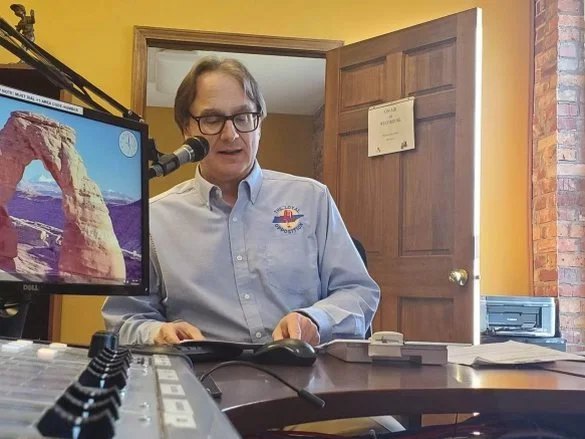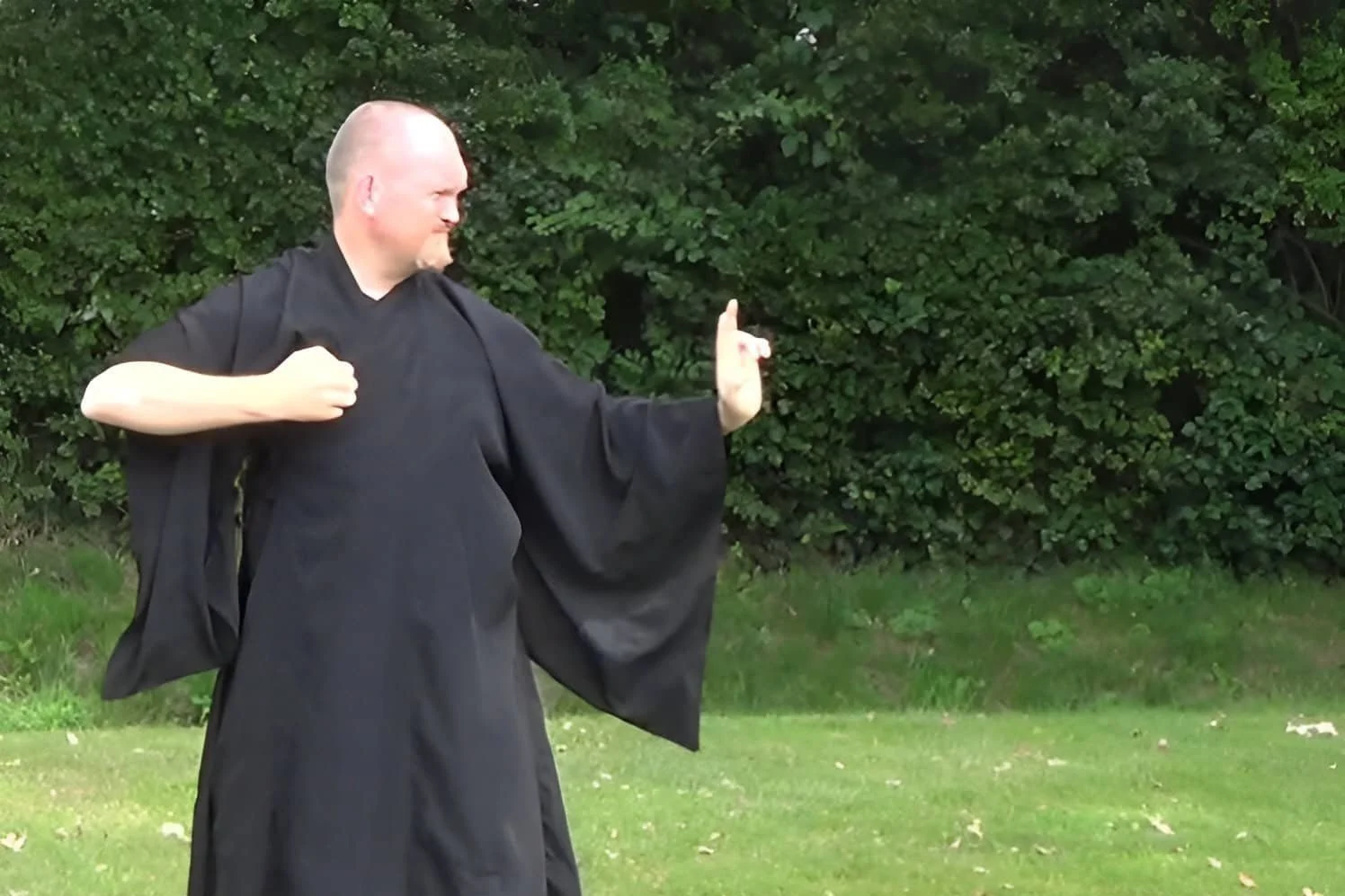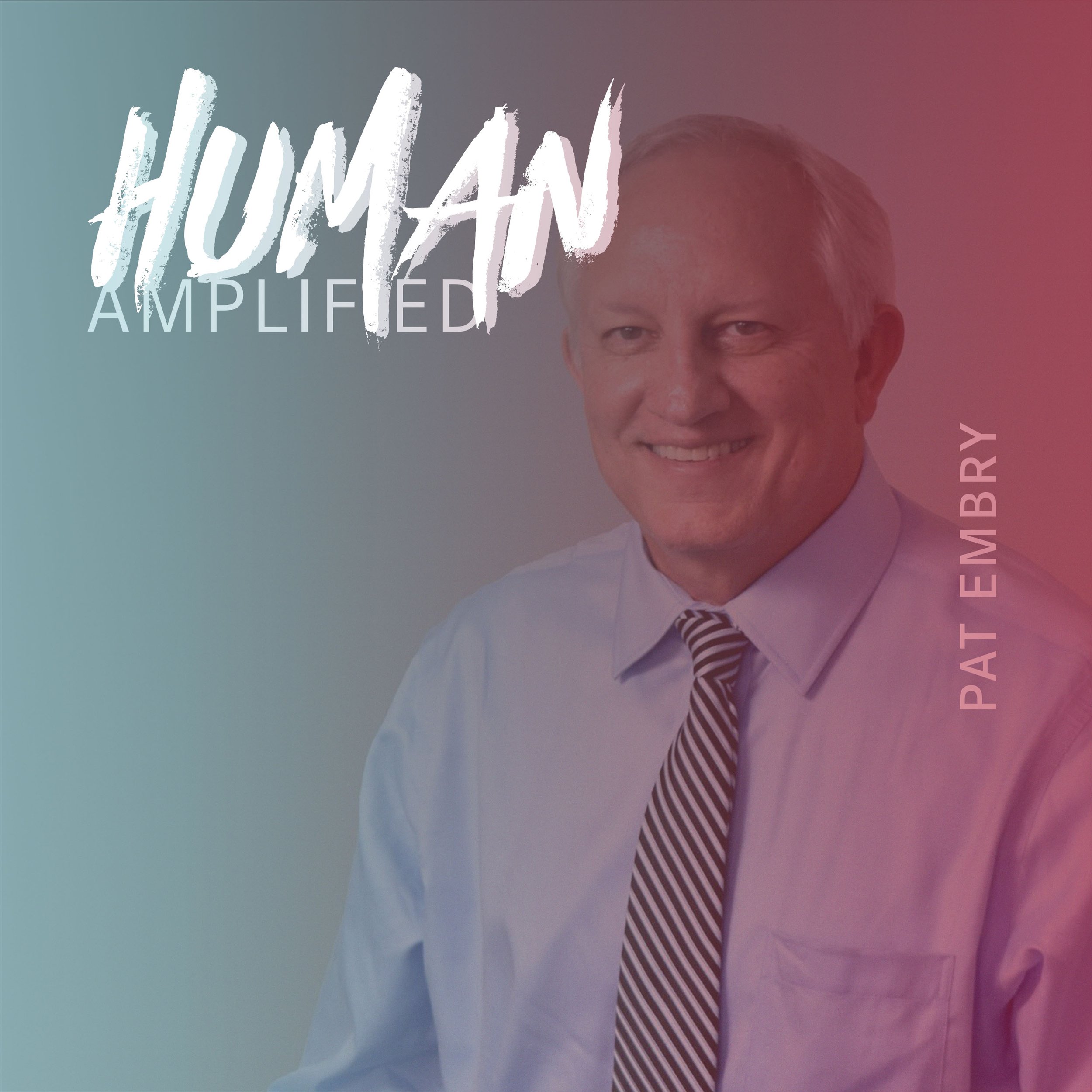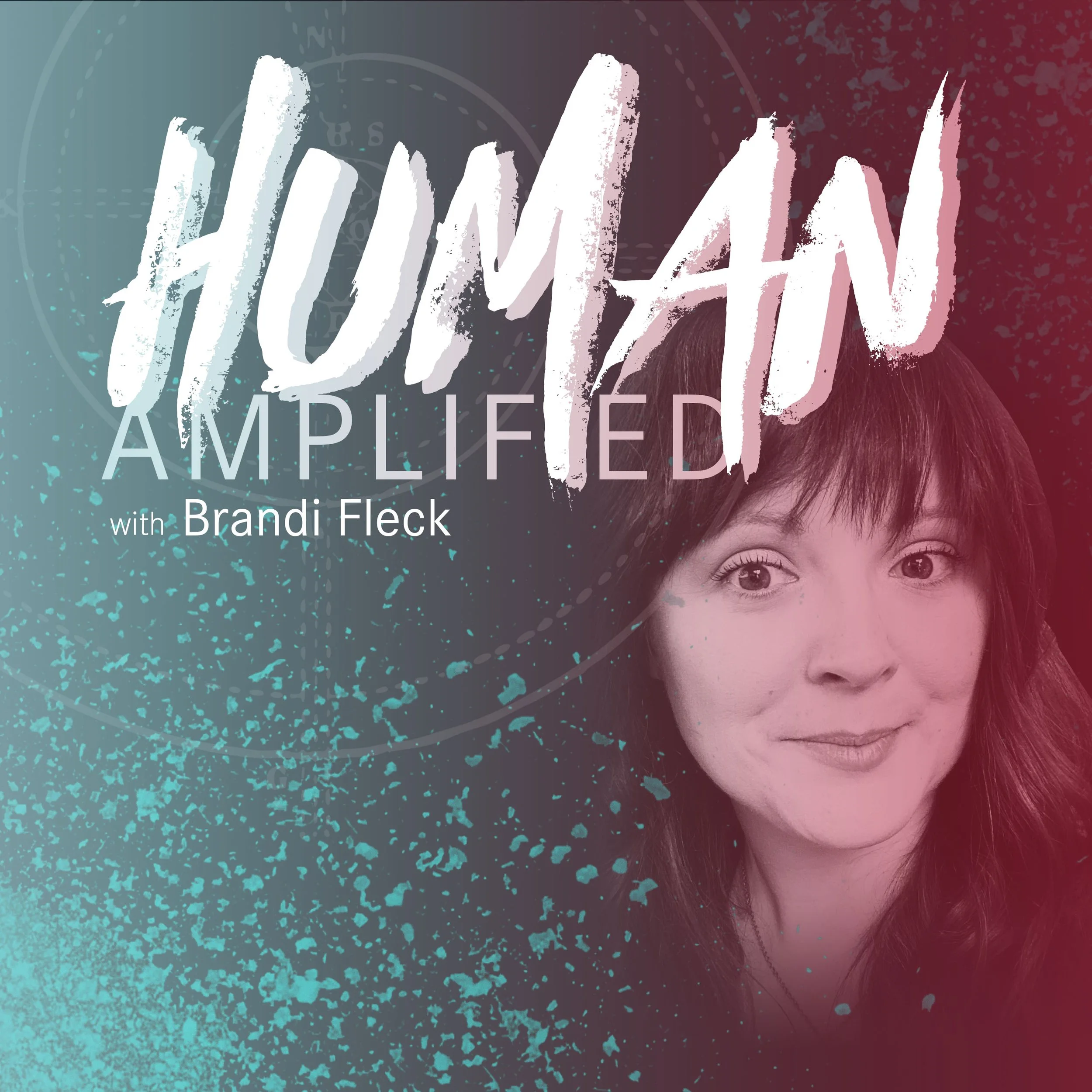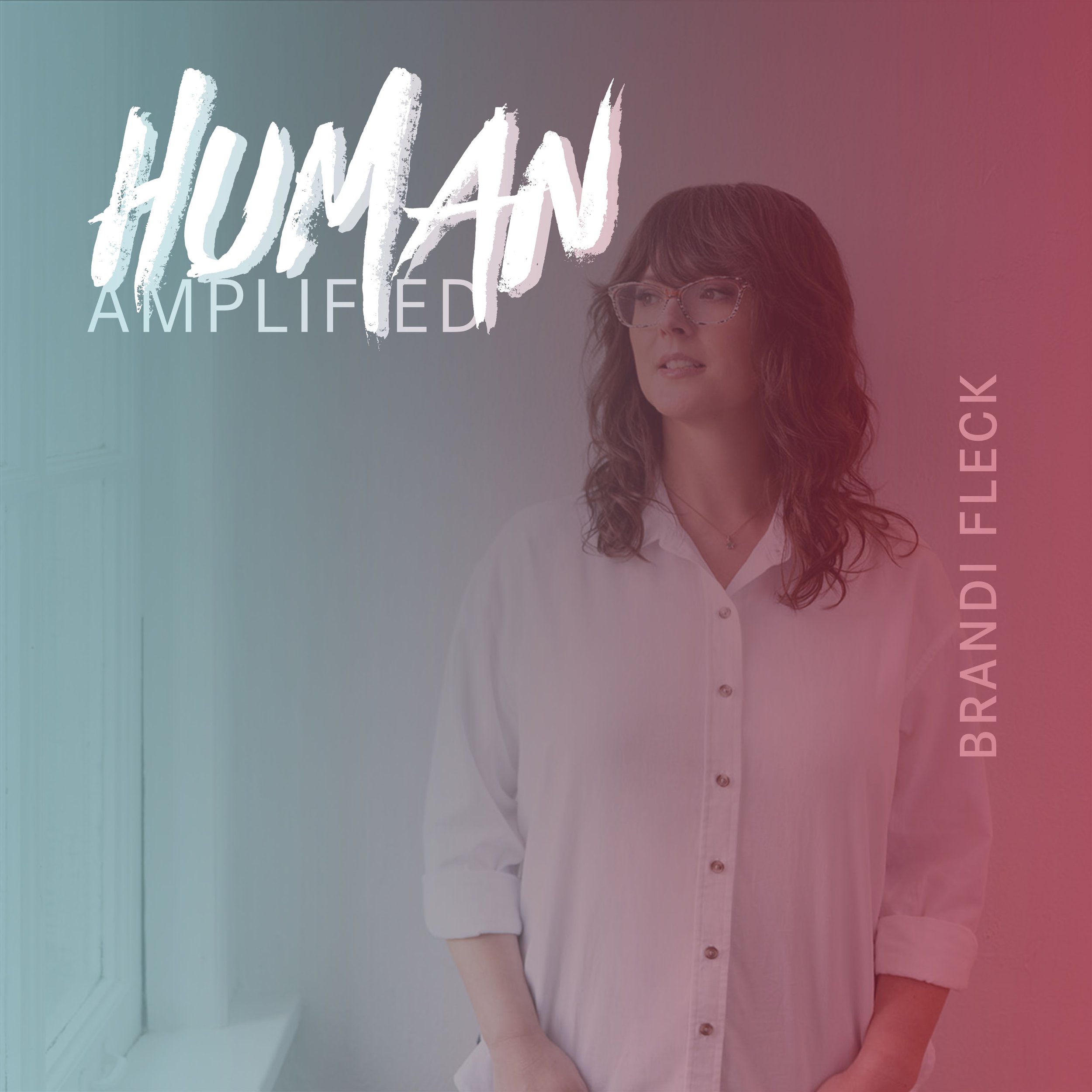What the Enneagram Really Is
Interview By Brandi Fleck
Photo provided by Micky ScottBey Jones.
This is a conversation between myself, Brandi Fleck, Host of the Human Amplified podcast, and Micky ScottBey Jones, an Enneagram expert, coach, and facilitator who focuses on helping social sector leaders grow and expand.
I met Micky ScottBey Jones at an International Coaching Federation (ICF) networking event for coaches in the Nashville area. She was so interesting and just has this presence that commands respect and that also piqued my curiosity. So, I asked her to come on the show for an interview because you NEED to know her and her work. Below, you’ll find the text version of our entire conversation about her expertise and personal story of working with the Enneagram as a tool for growth.
If you’d rather listen than read, you can do that here, on Apple Podcasts, Spotify, or anywhere else you get your podcasts.
Table of Contents:
Tap here to watch this interview instead.
What does being human mean to you?
To me, being human means being human with other humans. I don't know that you can be human by yourself. And so, it's a deep tapping in to what it means to be in a relationship with one another.
Ooh, I love that. Well, everybody, today, we are welcoming to the show Micky ScottBey Jones. And Micky, I'm so excited to have you here.
Thanks so much for coming on.
Thanks, Brandi. I'm excited to be in conversation with you today.
Yeah. So before we get too deep into the conversation…
Can you tell our listeners a little bit about who you are and what you do?
Well, describing myself is always a challenging thing, because I feel like I've been so many people over so many lifetimes, meaning just the one life I've had, but it feels like a million lifetimes. But I would say today, I'm a mother, I'm a motherless daughter, I am a partner and a coach and a facilitator. More than anything else, though, I think what encompasses all of that is that I'm an accompanier.
And over all of the work I've done over my life and the different careers that I've had, what it boils down to is that I accompany people. And typically during times of their own hero's journey or challenge or of transformation, and it's not about me, per se. I mean, I do bring skills and education and experiences to the table, but it's really about walking alongside folks on their journey.
I love that, an accompanier. And that sort of goes with like how you describe what it means to be human too, I feel like.
Yeah, I mean, I'm deeply influenced by the concept. Well, several concepts that you will hear about in, like the symbol behind me is an Endingra symbol, and I have an Endingra symbol on my body called the Sankofa bird. But there's also this concept that I learned about for my friends in South Africa called ubuntu.
And just, you know, I am because you are, that I don't actually exist outside of kind of other people and the reflection that we have of one another. And even the word Sankofa, which again is the symbol that I have on my arm, which is the symbol of a bird, and it's reaching back to an egg on its back and pulling it forward. And it's the idea that I'm kind of always reaching back into the past to learn from my ancestors and elders and those who've gone before, both cautionary tales and wisdom.
And yes, you innovate into the future, but it doesn't come from nowhere. That egg of whatever it is, is coming from those who have come before. So I just don't believe that we exist in isolation.
It feels, I think that's like the great lie. We feel like we're isolated and I battle that as well. But I feel so alone.
But the truth is that we're both in reality and kind of in emotional, spiritual, idea realms, philosophy realms, we're also surrounded by others that have been there before. And that we, even though we may not know today, we don't just exist in a vacuum.
I've had chills, like the entire time you've been talking. So that's awesome. I love that. And I know that your primary focus with work right now is Enneagram. And it's Enneagram coaching. Is that correct?
Yeah, I mean, I do a lot of coaching and facilitating and teaching for folks who are in the social sector. So people who are doing good in the world, nonprofits, philanthropy, community work. And the primary tool that I support them with is a model called the Enneagram of Personality.
I'm trained as a coach as well, and have a background in human development and have been in nonprofit for over 20 years. So I bring a lot of different things to the mix, but the primary tool that I use to kind of help people understand themselves and each other and kind of build a language around being able to understand each other is the Enneagram.
OK. How does the perspective of being an accompanier or being in relationship to sort of exist? Hopefully I got the gist of that correctly. But…
How does being an accompanier tie in with the Enneagram, or does it?
Well, I mean, I think you can. I think not everybody does that. You know, you can approach like if people, if your listeners have already heard of the Enneagram, some people have had a terrible experience.
Some have had maybe a life changing experience. I think sometimes people have the experience of like friends or family being like, oh, my God, have you heard about the Enneagram? You must be a type three because you do X, Y, and Z, right?
And that can feel like a bad experience with other people where somebody is, it feels like maybe trying to put you in a box or tell you who you are, or make assumptions about you because of what they observe. But I've also seen where it can be used to kind of, like my experience was learning about these different what we call types or strategies, kind of your way of being in the world or understanding the world, habitual patterns, that kind of thing. I realized, well, I'm not broken or wildly outside of the rest of the human realm.
There are other people who share this category of this type. And there are then people who don't share this category of this type, but I'm not alone. And so for me, it helped me kind of understand how kind of regular I was.
Like I'm not uniquely bad or broken, right? And so having those nine types helped me understand that. And so it did deeply connect me to myself, but it also kind of opened up this world of understanding that, you know, human beings come in kind of these particular ways.
Not that it's the only way to understand human beings, but it became a framework to help me kind of have more, more compassion for myself and empathy for others.
Gotcha. Well, and for our listeners who haven't heard of the Enneagram or who aren't really familiar with it…
Can you give us a quick rundown on what exactly the Enneagram is?
Sure. So I like to have a very simple, clear definition of the Enneagram. You'll find lots of information out there in lots of different takes, because the truth is there is no the Enneagram.
There are lots of ways to talk about this model of kind of understanding personality and human behavior. And there are kind of major schools that have cropped up over the last, I don't know, 30, 40 years. But really simply, it's just Enneagram means Ennea 9, and gram is like figure or symbol.
So really truly just a nine, like nine points on this symbol that go around in a circle. And we've used that diagram to kind of overlay a system of understanding personalities in human beings. I also have been trained in a method called Awareness to Action Enneagram, and that's what I primarily use with my clients today.
And even though I'm trained in the Narrative Enneagram and have had some other trainings as well, and I do use that some, but in Awareness to Action, we really try to use both these nine types that the symbol is named after, and also these three instinctual biases, which help us understand what we value or pay attention to. And I think when you combine those two elements, you can use just one, either the instinctual biases or the nine types or strategies. But when you use them together, it's a really powerful way to understand what we prioritize with the instinctual biases and kind of what we do to get those things that we prioritize in the nine types.
And then it just really opens up kind of understanding for yourself and for the people that you love and work with.
Would you categorize Enneagram as like a personality test, or is it more than that?
Well, I think that helps people understand kind of the genre. You know, like, if you're trying to understand different kinds of music, it might be that you're like, oh, this person is like this person, right? So it helps you understand the genre.
But you can get to your type and your instinctual bias by tests. There are online tests, there are people who develop tests. I don't think that's the most kind of accurate way to understand these things.
I think working with a trained professional who really understands the model and their particular model that they're using or what they've developed, and also has kind of the acumen, like they just kind of got it. They know how to look for what they're looking for. I think that's a better way to determine type.
Or even doing that work yourself. Sometimes I lead sessions where I'm explaining the model to folks and they're kind of self-typing, if you will. I just think it's such a dynamic thing.
We kind of game test or we answer things as we want to appear. Or, you know, we were like, oh, I'm this way, so I should start answering the questions this way. We can kind of game it a bit.
And when someone's just talking, this is often how I do what I call a typing interview, or what we call it in Enneagram world. I talk to someone and we're able to discern their type and their instinctual bias. And so there's things that I'm getting from someone when I'm in a typing interview that are not in the answer per se, right?
There are things that I can catch that a test, that a computer generated test that is designed to look for certain things, but also might miss other things. It just can't quite catch it. So it's not a personality test in that way.
And it's also not a personality test like others because it isn't about kind of sticking you in a box. It's about recognizing your patterns. And then also depending on, I mean, not all maybe Enneagram models are built this way, but yes, we want to recognize patterns and build awareness.
But then we want to also be able to move into, what does it look like if we're choosing another strategy? Like, what does it look like if we're expanding your strategy? There are ways to kind of look at this that's more about growth.
And there are ways to look at it as, oh, this is just who I am. And I think a lot of, you know, you talk about extrovert or introvert, nobody's like, oh, I can grow in my extroversion, you know, or maybe I overuse this or need to whatever. Like, we don't really talk about changing it per se or growing with it.
And the Enneagram, you know, at least in the way I teach it, and a lot of people teach it, is that it's really about how can I grow, how can I kind of be at my best?
Well, that's a really great explanation because I don't feel like you hear a lot of people talk about that, at least, you know, in the mainstream internet world where everybody is all like, oh, very into typing themselves and things like that. So I was going to ask you…
How has Enneagram impacted your life in terms of what you've learned about yourself?
But I know that you said earlier that it's helped you not feel alone. Is there anything that you might add?
Yeah, I have a kind of dramatic Enneagram origin story. Like we all, all of us that work with Enneagram have kind of our origin story because typically the reason we start studying it and become facilitators and coaches is because it has changed our lives. It has had a deep impact on our relationships or how we show up at work.
And I have, and I do have a story like that. I got introduced to Enneagram as I was kind of moving from more what I would call conservative restrictive theologies and ways of thinking and believing in the world. And I was getting into more progressive theologies more in the Christian world, more open and affirming and just expansive, like understanding God in a way that was bigger than I had before.”
“And frankly, that wasn't about just me being good all the time, like how can I be good and perfect and maybe somehow worthy of God's love? Because I had kind of gotten into that as a very young person. And so my faith journey leading me into these more progressive spaces is where I had friends that were talking about it.
It was part of those circles. And I was like, OK, sure, I'm interested in self-improvement or knowing more about myself and this thing that seems kind of about being a better person or being spiritual or whatever. I didn't know anything about it.
And those conversations with friends led them to the kind of the experience I talked about about being bad. But people saying, oh, I bet you're this type, you know. And it was just a really good experience in that I don't know that I had had that kind of self-reflection before that.
So it had always been kind of about search how bad you are. And the Enneagram helped me not hate myself because I realized these things that I thought were bad or needed to be changed were just a way of being. And, you know, I say all the time in my trainings, no strategy, so no type, is better or worse.
Not good or bad. They just are. And there's a logic to them.
Each one has a logic to them, even though they may not seem logical. And so when you understand that, you can just have a lot more compassion for it. And that's what it did for me, is it opened up some compassion for myself.
I've still had to do a whole lot of work around, you know, understanding who I am and accepting that and having love for myself, but it gave me so much more room. And it really, I mean, it helped me not hate myself because I didn't just think I was broken. And that awareness step, some people stay there.
They're like, they learn their type, they learn that about the Enneagram, and that's it. But there is something so good that comes from that, that that's what they need to do. I, at this point in my career, I'm very interested in helping people move into kind of, how do I change the things that need to be changed?
We don't need to completely change, we don't need to change for no reason, but if something's causing us pain or tension or friction with somebody we love or somebody at work, then when we know our patterns, we can usually go to those as a shortcut. That's probably where the problem is happening. And so then we can work with it.
And that's what gets me really excited right now, is like, let's find that piece of the pattern that's causing you problems, and let's get right to it.
Wow, that's really powerful. I heard you say twice, like, it helps me not hate myself.
Did you know that you hated yourself?
Probably not. I think it was under the guise of, again, a lot of religious rhetoric, you know, that I didn't know I was consuming, you know? I didn't understand that I was kind of being taught to hate myself, you know?
If the theology, if the sermons, the music is all like, you're a wretch, you're a sinner, you're, there's nothing good in you. You were trash, you were meant for hell, and then look how God decided to give you another chance. Like, you know, and I didn't really understand what that was doing to my psyche.
I just recently got my kind of childhood journals and diaries again, because my daughter is getting married in October. And yes, and she was looking for my wedding dress. I got married when I was 19, had her when I was 23, so I was a very young evangelical bride.
So she was looking through a trunk in her grandmother's attic, and it was full of my stuff. And shout out to my ex-mother-in-law, who has not thrown my stuff out on the curb. I still had a trunk in her attic, and I'm so grateful.
And that is good. But it had diaries from literally when I was 10 years old until I was in my early 20s.
And I haven't poured through them. I just kind of glanced through them, because I really want to, my dream is to kind of set aside some time to sit with them.
But I could see the shift in kind of normal pre-teen talk, and then I had my kind of conversion experience, where I learned kind of, I had been in church with my mother as a young child, but the messages in the kind of traditional black church are a little bit different. There's not as much kind of condemnation, not in all of them. There are some that for sure give you, people have church trauma from black churches, and I don't want to dismiss that.
But there was particular messaging in the kind of very conservative white evangelical spaces that I moved into as a teenager. That then you can see as you, as I read through the writing, I could see it shift into more about how bad I was in contrast to this good God. And I don't know that I was shocked, but I was like, this is really interesting.
And I think I wasn't aware of how it shifted my brain and my understanding of myself. And I am grateful to have a different, more expanded understanding of the divine or God. Like, I am not so stuck on what to call that being, that thing, whatever it is now, but I feel better about myself, I guess, than I did then.
So yeah, I mean, of course there's so many like, cultural messages about who we are and who we should be, that I still wrestle with that, but to see that shift in my writing and see how I kind of learn to hate myself or think of myself as bad, I mean, it struck me, like it was being struck in my chest. It was just, it was pretty wild to see it, you know, because you don't really think about your teen years that often. So it feels like a gift to have these journals back in my life.
That is, I bet, going to be a really powerful experience when you are able to take the time and sit with that, or even more than you already have, it seems like.
Is it your mission, then, to help other people love themselves and who they are more?
Well, I mean, I think this is where it comes back to being in a company or, like, everybody has different work to do, you know? So for some people, the work is to love themselves more. Some people, they're good.
Like they got that on lock, you know?
Okay. So they might have other work to do. So I want to help people do the work they need to do.
I still do some work in faith-based spaces for about a decade there. That was my, well, it's been off and on throughout the years that my work has been kind of faith-rooted justice work or supporting faith leaders primarily. And I still do that, particularly when called upon.
I have theological training. I've worked in a lot of multi-faith spaces and spaces in all kinds of like along the spectrum, I guess. But primarily now, I've really expanded into spaces of just social good, you know.
Most of the people I work with now are not primarily working in like faith-based nonprofits. They may be working in philanthropy. They may be working in kind of community-based organizations.
So it's not explicitly around faith, which doesn't have to, you know, be learning to love yourself or whatever. But my point is that I want to help people go on their journey. I want to be that support person, you know, in coaching that's kind of about mirroring them and helping them ask better questions of themselves.
You know, I can give resources and help, again, like using a tool like the Enneagram, help them have a framework for understanding and talking about themselves and others and kind of the points of friction. But, you know, I really just want to, as we say, facilitation is kind of to make things easier. Like, I'm here to help people, to help make things easier for people, those hard things that you have to do.
I can't actually do them for you, if that's a difficult conversation or trying to come up with a strategic plan for your organization, whatever it is, I can't actually do that for you, but I can try to make it easier. I can try to support you so that you can do the work. When I was a doula, I can't actually make the birth any easier.
I can't shorten it. I can't make the baby get in the right position, but I can be here with you. And hopefully that human component of walking alongside each other makes it easier.
Let's pivot now into, I feel like Enneagram has sort of exploded in recent years. It's become so popular. People love to talk about it.
Why do you think people love Enneagram so much?
Oh, I mean, on the shallow side, people love to talk about themselves, even though we say we don't like to talk about ourselves, you know. People will be like, I hate talking about myself, and then proceed to talk about themselves for an hour and a half. I mean, think about the rise of podcasts.
You know what I was like? Like, I know we're on a podcast right now, but...
Essentially, podcast is a way for a lot of people to, especially those that don't interview people, they're just talking about themselves all day, or talking, you know, with their friends, or, you know, what they think about things. And so, I think the Enneagram is... Yeah, there is a lot to learn, and the more you learn about it, the more you're like, there's so much to learn about this.
But I've always felt lost with, like, astrology, and I don't know if, like, how complicated some of these other systems are, but it feels like there's a lot to learn in astrology. And I'm just like, I can't learn all that. You know?
So I think it's fairly accessible, you know, in that it's not terribly complicated, or you don't have to make it complicated. There are lots of people who come up with lots of Enneagram theories that make it more complicated, but on its face, nine types, and then if you put the three instinctual biases in the mix, that's not a lot to learn. But I also think on maybe a deeper level, the popularity is also because it makes sense.
Like it does resonate with people. They get it. They see themselves in it, they see people they love in it, people they work with, people that frustrate them, you know, all of those things.
And when it seems useful and resonant, people continue to flock towards it. And so I think that people just, they get it pretty quickly and it feels useful. It feels like something that they feel seen, you know, like, oh, yes, I can see myself in this strategy, you know, and so they want to go towards it.
And so I hope that we're moving toward it being more useful versus just like a way to identify people, because I think a lot of people get stuck there and get too enamored with the model over what we can do with the model. But, you know, we'll see. It is kind of proliferating in an interesting way.
Like, I've seen candles and paint colors and t-shirts and like all everything with Enneagram. And it's like, is it getting a little too diluted to be useful? But maybe, maybe not.
We'll see.
Yeah. Okay. Well, and it's funny that you brought up astrology, because I was thinking about astrology as you were talking. And I was thinking, oh, well, you know, I know that people use tools like that to sort of get to know themselves in a way. Like, maybe you discover parts of their personality or who they are that they just didn't know or maybe. And I was thinking of Enneagram from that perspective, like, oh, people just really want to know themselves. But you bring up an interesting point of they feel seen, which might actually be a little different.
What do you think is special about being seen?
Yeah. I mean, I'm thinking of a, I think it's a Zulu word, it's a South African word, that the word is Saubona. And Saubona is, it's a greeting.
It's essentially a way to say hello, but it doesn't just mean hello. It means I see you and I see your people, essentially. Like, I see your mother and father and grandfather and grandmother.
Like, I see you and the people that have come before you. Which to me is an incredible greeting. It just moves me to think about it.
And it also essentially means now that I've seen you, I'm responsible to you, for you. Like, I have a responsibility for what I've seen, right? That to me is just an incredible way to greet another person.
Like, again, you don't just erupt from nowhere, from the ground. Like, you come from a history and a lineage and a people. And when I'm seeing you, if I think I'm seeing you absent of that, then I'm not actually seeing them.
So it's like when people try and say, well, I don't even see color. I'm color blind. I don't even see color.
I'm like, then you don't actually see me. If you don't see me in my skin color that people judge me by, that culture is set up to treat me away because of that, if you don't see who I am as a woman. Now, I'm not saying you can go around and assume things about people because of that.
You Might Also Like: Being SEEN In A World Not Designed For You with Nashville Therapist and Social Worker, Amiee Sadler
Now, we do because our brains categorize humans the second we see them. That is part of what we do. People are always like, I don't judge.
I'm like, you actually do judge, and that's part of your brain trying to keep you safe. It's not a bad thing per se. What happens is when we assign goodness, when we put people into a particular place in a hierarchy, when we treat them a particular way because of it, right?
What happens after the judgment that is the rub? That's where we get into societal trouble. But we have to see each other and see what we're bringing, right?
Like what's coming with it. If I go to my best friend's house right now, she lives 10, 12 minutes away, and I see her and there's a look on her face of pain and I don't see her, we have a problem. So there's something about being seen in the fullness of who you are that can change your life when other people can see you, that changes your life, that can change the life of others, it can change the trajectory of the conversation.
Even if you see someone imperfectly, like you're not seeing all the pieces they want you to see, there might be a piece that you're getting, and then it's able to open up a conversation. There's just something really powerful in seeing and being seen that kind of goes beyond the just like a surface, you know, seeing of the person. And I think it takes a little more time, it takes a little more being with each other to get that part, to actually like really see each other.
It takes a little more time, and it takes kind of a, like in the word, salbona, it takes like a commitment. I now am responsible for what I'm seeing. Like, that's part of this CNBC scene that I think is often missing in our kind of interactions with each other on a daily basis.
You Might Also Like: The Healing Power of Seeing and Being Seen
What does it mean then to be responsible for what you are seeing in someone?
Wow. Yeah. I mean, that's the question, I think.
Is what, right? Like, I think that's the question that society is trying to figure out. I have my second child is in school right now and studying philosophy.”
“And it feels like that's so many of the questions we've been trying to answer since antiquity, right? Has been like, what is my responsibility to you as a fellow human being? How, what is, what are our responsibilities to one another?
And so we try to legislate that. We try to have religious laws about that. And we try to have community standards for that.
And to an extent, I think that can help. Guide rails can kind of help us do those kinds of things. But there's also a piece that I think comes from being human with each other.
And some of those guide rails are maybe more implicit than explicit. And so that is also a challenge, right? All those cultural ways that we don't really say out loud.”
“But I think being responsible for each other is one of those things that we just kind of catch. It's so in the cultural soup that we can't quite identify it. If we don't have it, then I think we maybe we notice it.
But when we do have it, maybe we don't. So we don't really know how to teach it, you know? Yeah.
You know what I'm saying? Like those classrooms where students help each other out and they kind of feel like we belong to each other, like they know it because the teacher or the school has like set it up in such a way that it's just how this is going to be. I think it's a way of being kind of, you know, if I go, you're going to, like we're going to walk together, we're going to be together and we're not going to leave you behind.
It's like the Lilo and Stitch thing, you know, family means nobody gets left behind, right? Like we're going to do this together. But that is really tricky, especially when we have a larger cultural message of take care of yourself.
Yeah, the rugged individualism. And it's interesting that when you bring up the guide rails of like legislation and religious laws and things like that, it takes me back to what we were first talking about when you were saying that Enneagram can put you in sort of a box, even though it's meant to help or that it can help you grow. Just like those guide rails, they can either, they can help in some ways, but they put us in a box in many ways too.
So it's a matter of like, how do we want to deal with it? What do we want to do with these things? But I guess so.
Let's pivot one more time into the practicality of Enneagram.
What are some practical ways that people can apply what they learn about themselves through Enneagram to their real lives?
I'll give you two things. So in the narrative Enneagram tradition, we have a practice that's called Notice, Pause, Allow. And so it's really learning to notice when something comes up in you.
Like somebody does something or says something maybe that feels out of pocket, and you might notice a reaction. You know, your face gets hot, you maybe feel your heartbeat faster. Like sometimes we just jump to a reaction versus that noticing.
So noticing, pausing with what you're noticing. We actually have kind of a feeling or physiological response before we have a thought, but often it's so fast that we don't know that. So when we can do the pause in between, then we have a little more space.”
“And then Allow is, I can allow myself in that moment to have whatever feelings I'm having without having to immediately do something. Now, acting, doing something might be the thing, but if we don't do the notice and the pause before, we sometimes don't make the choice that's going to be best. We're not making kind of the adaptive choice, we're making the maladaptive choice.
So that's one thing that I think is easy for, not easy because it's a hard thing to do, but it's something you can apply without much additional guidance. But there's stuff out there about notice, pause, allow. I believe that came from Dr. David Daniels, who is one of the founders of the narrative Enneagram, one of the early Enneagram teachers.
Then you have from awareness to action Enneagram, which again is what I mostly use with my organizational clients. In this, we have an actual change model built into this Enneagram model. We use the diagram with this, but I don't necessarily need to talk about that because we don't have it here to show.
But it's the idea that we build the awareness first. So that's learning about your type and being able to understand, okay, this is the strategy I use to get what I want. And this is the thing that I prioritize, my instinctual bias.
When you learn that about yourself, you're creating awareness. Maybe you're even learning that about your team, again, building awareness. If we recognize something we want to change, like if we're doing this in teams, there's a place of friction.
If there's just something that's not working in my life that's causing me pain at work, or just, you know, whatever, it's not, I'm not progressing the way I want to, then we realize in building that awareness, something needs to change. But we can't just change, and this becomes the problem with change, is that we just want to change. But we're always going to kind of go back to the way our brain has habituated to work, so this strategy that works for us.
So we need to learn to actually expand our understanding of our strategy and even expand our understanding of how we prioritize this area that we prioritize. So that step is authenticity. We're creating a more authentic understanding of this pattern, this way of being.
So for me, my strategy is striving to feel perfect. And so I feel at equilibrium, I feel best when I feel good or perfect or right. There's lots of ways I could talk about it.
But when I feel like I'm doing most things right. And in the past, I had a very narrow understanding of that, that fit really well, especially with this kind of more conservative view I had of the world and of myself. When I expanded that, then it could hold a lot more and I could kind of see different ways I could be perfect.
It didn't mean I had to do everything according to this one way of being. And so that was me building a more authentic understanding of my strategy. And then from there, you can actually begin to build real change.
So action is the last step in that. And the action, usually, usually what I do is I help clients think of very small things that they can do to change that are in line with the expanded understanding that they've built in the authenticity step. And so they practice this new expanded version of what they believe to be true about themselves.
They give their strategy that's now been expanded, they give that strategy room to prove itself by trying one new thing, one new action over the course of the next week or two. And then that gives you more data to build a new awareness upon. So this awareness, authenticity, action triangle keeps happening over and over again.
And that's how we incrementally change and start having new patterns, new strategies. They're not really new, they're just expanded. And when we really get into it, we talk about kind of not just your number, but you're attached to two numbers.
So you have two other strategies that you most likely use. And so sometimes we work with those strategies. So really, even though it's a simple system, you have a lot to work with.
Well, this is the perfect segue into change and transition. It's interesting, because as I listen to you talk, it seems like the people you work with are coming in wanting change. They're ready, they're primed for growth. A lot of times, when I'm working with clients as a trauma-informed coach, even though they want change, there's a lot of fear around it.
What would you say to someone who wants to grow and have a better life, but they're afraid?
I mean, fear, I think fear is very informative, you know? I think I'm actually reading a book right now on behavior and neuroscience, which is it's an incredible book. It's called Behave.
It's by Robert Sapolsky, whom I love. He is a brilliant scientist, but also super funny. I've read other books of his, but this is the biggest, I think, book of his that I've read so far.
And so even that is helping me understand how much of this is like our brain and the pieces of our brain firing and doing things, right? We can make a lot of moral judgments about fear and about like our emotions and like essentially the labels we're giving to how our body feels, right? And then to the thoughts we then have connected to that.
So there are ways in which I feel like it's important to kind of honor that fear or, you know, trepidation, like when we're not sure, like this is what I want, but I don't know if I want it, that kind of thing. I want to kind of honor that, right? And like fear is literally a biological process that has kept human beings alive in order to get to this point in our evolution.
Like this is… it's not a bad thing. Yeah, yeah. You know, the bad thing is that we have brains built for running from a bear and we don't typically have to run from a bear anymore.
So we got to figure that part out, you know? So how do we honor it and how do we change? What I was just talking about with that change process and the Awareness to Action Enneagram method, the authenticity step is where we really work on, do I really want to change?
Because what happens is we just try to change or we say, I need to change this thing, I need to do this thing. But we don't actually believe that we want to do the new thing. So we had to work on kind of the background story so that we can actually do the change.
Because if the change doesn't line up with the background story, we're not going to do it. We're just not going to do it. Because our brain is like, I don't care, I'm not with it.
So we'll just go back to the old patterning. So there are lots of ways that I kind of talk people through this, but it's basically you can't force yourself to do something you don't want to do. I mean, you can, but you probably aren't going to do it very long.
You may just re-traumatize yourself. So how do we do it in a way where it actually fits with what we actually believe, right? Like people will tell me again, as someone who's striving to feel perfect, will be like, oh, just it doesn't matter.
You don't need to be perfect. Just accept how it is. Just deal with, you know, and it's like, I appreciate that.
And that's not what my brain is going to choose. So it will actually be more perfect or I will actually feel more perfect if I have a bunch of dinner options to choose from and I make whatever I want on any day of that week, right? Instead of like, I have to make a dinner list and on Monday we're going to have this and on Tuesday we're going to have this and on Wednesday we're going to have this and I have to stick to it.
But I'll actually feel more perfect if I just have seven meals picked out for the week or five. And I let two nights be whatever and I do whatever I want within those five meals, right? That might feel like a weird thing and doesn't make sense to anyone who doesn't have my logic.
But if somebody does have that same pattern, they're going, Oh, yeah, that that sounds really interesting. That might work. And it's a very, very small thing to a lot of people.
And then what my brain does is extrapolates that out onto other things. When it works with the dinner thing, now my brain goes, Hmm, look how we can also experience this perfection with something else that I expand to, right? Like I don't have to plan out every outfit when I go on vacation.
I can just choose mix and match and go, right? It's that kind of thing that allows us to kind of move past the fear, move past the, you know, where your brain is telling you, no, this is what works for us. Because that's true to your brain.
It's very true. This is what works for us. So if we're going to do, if we're going to change, we have to expand to something else that could work for us.
And then we have to try it out. And when we have the evidence, then our brain can relax and it can expand. The, you know, and so it just change doesn't happen quite the way we think it does.
It's, it's so incremental. It's so like, you know, we have to kind of help ourselves along because we don't really trust new data. We only trust what we know.
So it's been interesting to kind of, instead of changing people to another thing, which I think I, I mean, that was kind of how I did Enneagram stuff before is like, oh, just do the other thing. And I'm like, oh no, it really does make sense to just expand what your brain already thinks is true.
Yeah. And I guess the evidence sort of provides like safety in a way.
Well, thank you for sharing all of that. This has been awesome. And I want to ask you too…
Is there anything that I didn't ask that you feel is important to share?
The only other thing I would share is I do think your teacher matters in all of these kind of things. You know, we're both coaches. You know, you work with trauma.
And, you know, I often am supporting folks who are going through a lot of transformation. They're maybe trying to decide, do I change jobs? Do I stay on this trajectory?
And it can even be other things like whether it's finding a dating coach or whatever, you know, I'm obsessed with cults and like cult documentaries. But I think why I'm obsessed with them is because of this human relational aspect. And what I see in people often is they are just desperately searching for a place to belong for somebody who knows something and can help them figure it out or can lead the way.
Like nobody gets into a group of people and is like, oh, I hope this is a cult. Like nobody's doing that. But we end up there and you see so much talk about, you know, kind of religious trauma and people leaving religions now and we do have the kind of largest number of nuns and NONEs now that we ever have had.
And I do think your coach or your teacher matters. And it's okay to question people, to interview multiple people, to Google search their background, to ask to talk to other people or to find other people who've worked with them. And also it's okay to like trust that little piece inside of you that's going, this doesn't feel right, this doesn't feel good.
The way that person talked to me was not good. And I remember one time letting a therapist go, I've actually let a couple of therapists go, and how difficult it was for me to stop seeing them because I'm like, maybe I'm not getting it. And that wasn't the case.
And so I just, I think I want to encourage people to actually question and research the person they invite to walk beside them in whatever it is they're trying to change, whether it's organizational or an individual coaching session, it's okay to do a little searching and researching before you pick someone. And it's okay to stop seeing that person once you have picked them. Because your teacher does matter, your coach matters.
Both their training and education is super important, but who they are, how they interact with you, how they treat you. And to me, that feels like an important thing to encourage all of us to do as we're trying to figure our way.
Yeah, I totally agree. So thank you for that. And Micky, how can our listeners find you if they want to know like how to get to your work or any otherwise?
Yeah, well, I have a website. I'm the only Micky ScottBey Jones that exists in the world. And so my website is just my name, mickyscottbeyjones.com.
I have a YouTube channel. I'm pretty easy to find. Again, you can Google Micky ScottBey Jones or put me in the YouTube search bar.
I'm kind of taking a social media break. Like I don't, I don't know. I just have taken it off my phone and just scroll TikToks and don't do any other social media right now.
But I could pop back on to Instagram tomorrow. You never know. But the best way to keep up with me then is probably my newsletter because I don't know what that social media engagement is going to be.
But it's been feeling really good to have a newsletter. And that goes out every two weeks. And you can sign up for that on my website as well.
Join the conversation!
Feel free to share your own experience and let me know if you have any questions in the comments.
Related Posts
Hi, I’m the founder of Human Amplified. I’m Brandi Fleck, a recognized communications and interviewing expert, a writer, an artist, and a private practice, certified trauma-informed life coach and trauma recovery coach. No matter how you interact with me, I help you tell and change your story so you can feel more like yourself. So welcome!
Find More on the Blog
Topic
- Black and BIPOC
- FAQ
- LGBTQIA plus
- Nashville
- UFOS/UAPs/ETs
- abuse
- accountability
- addiction and recovery
- affirmations
- afterlife
- angels
- animals
- anxiety management
- art
- astrology
- awakening
- behind the scenes
- being human
- body image
- body work
- boundaries
- brandi fleck
- breathwork
- burn out
- cancer
- career
- chakras
- channeled
- clarity-dive
- clarity-practice
- clarity-primer
- coach
- communication
- community
- confidence
- conflict resolution
- connection-practice
- connection-primer
- consciousness
- creator
- crystals
- dance
- dating
- death
- decision making
- disease
- divorce
- education
- emotional health
- energy work
Recent Blog Posts
Explore More on the Podcast
Latest from the Podcast
Shop My Socially Conscious, Playful Art

